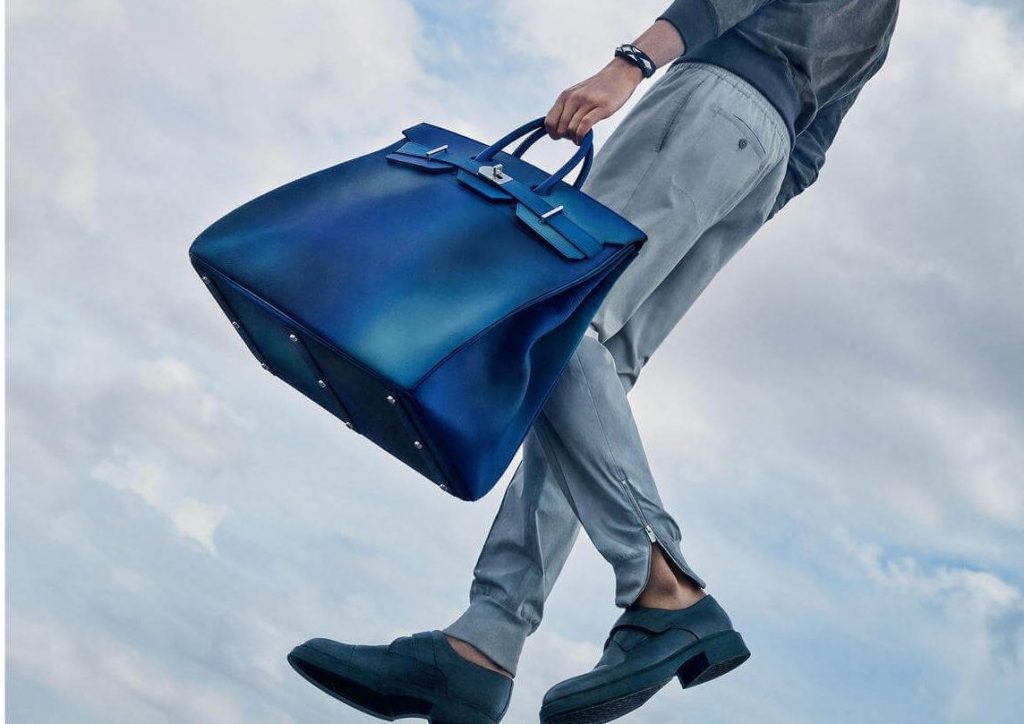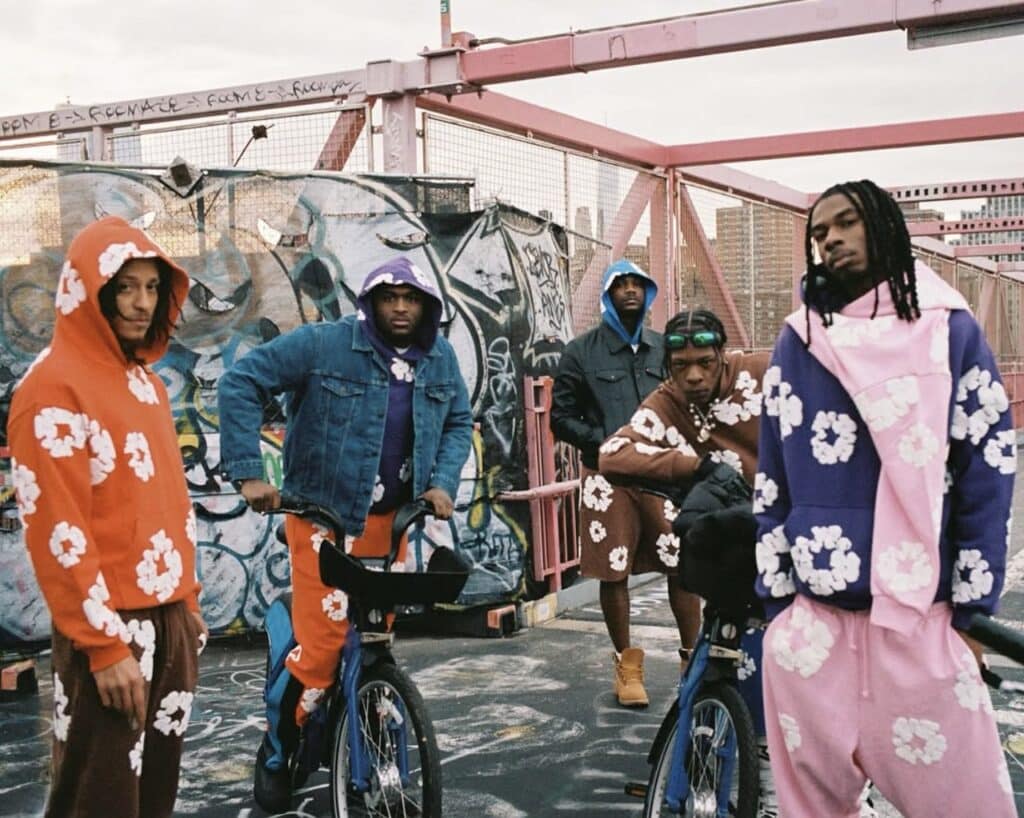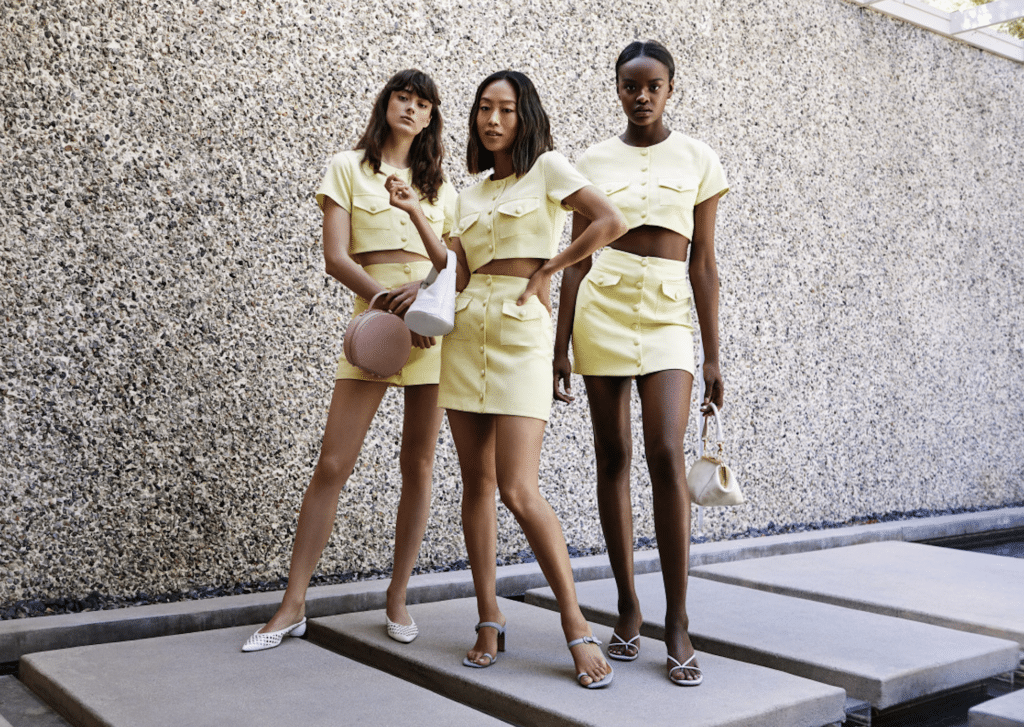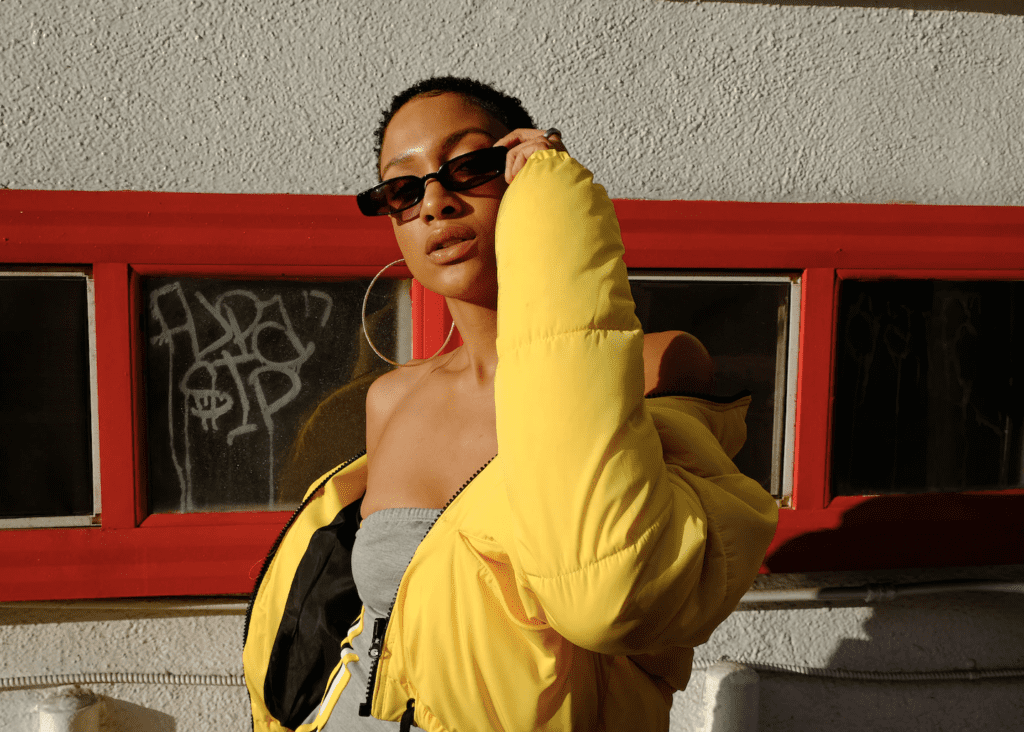A nine-person federal jury in New York City sided with Hermès in its fight over non-fungible token (“NFT”)-linked digital images that mirror the design of its famed Birkin bag and that bear the “MetaBirkins” name. Finding that MetaBirkins creator Mason Rothschild (whose real name is Sonny Estival) is liable on all three counts – trademark infringement and dilution, and cybersquatting – for the MetaBirkins NFTs, and that he is not shielded by the First Amendment protections that apply to artistic and not-explicitly-misleading works, the jury in the U.S. District Court for the Southern District of New York returned their verdict on Wednesday morning, awarding Hermès roughly $133,000 in damages.
In the wake of sending Rothschild a cease-and-desist letter in Dec. 2021, when he first offered up 100 MetaBirkins NFTs, the Birkin bag-maker alleged in its Jan. 2022 complaint that by way of his extensive promotion and sale of the NFTs, which “unlawfully use [its] HERMÈS trademark, BIRKIN trademark, and BIRKIN trade dress,” Rothschild was engaging in trademark infringement, dilution, unfair competition, and cybersquatting. (The latter claim stems from his use of the metabirkins.com domain.) Hermès also argued during the course of the case that “Rothschild’s unlawful use of [its Birkin bag] trade dress and imagery is an aggravating factor,” but it was his “unauthorized use of the BIRKIN name for NFTs … that gave rise to this action.”
As such, the primary issue, according to Hermès, is Rothschild’s use of the Birkin trademark “to refer to and promote the NFTs themselves,” which it claims “have value separate and apart from any associated images.”
The French luxury goods brand – which cited actual confusion among consumers, media outlets, and legal experts, alike, as to its involvement in and/or authorization of the MetaBirkins – sought injunctive relief and monetary damages. Its counsel emphasized the striking value of its trademarks, including the “Birkin” word mark, and argued that Rothschild’s NFTs were less about artistic expression than an attempt to profit off the fame and appeal of the Hermès brand. (At trial, counsel for Hermès showed the jury messages sent by Rothschild, including one where he “told associates that he wanted to make ‘big money’ by ‘capital[izing] on the hype.” Such comments “are probative of an intent to exploit” the reputation of its marks, Hermès said.)
From the outset, Rothschild disagreed with how Hermès framed the case, arguing that “MetaBirkins is the title of an art project and a series of 100 artworks; it is not a [trade]mark.” He also asserted that in addition to being an experiment to “see what kind of value people would ascribe to these two dimensional pictures,” the furry appearance of the NFT-linked Birkin images was “inspired by the acceleration of fashion’s ‘fur free’ initiatives and embrace of alternative textiles.” Still yet, Rothschild asserted that he did not intend to mislead consumers as to the source/nature of the NFTs, as indicated by his inclusion of a disclaimer on the MetaBirkins website and his pattern of taking credit for creating the NFTs. (A read between the lines seems to suggest that jury was not persuaded that the disclaimer was effective in limiting likelihood of confusion, the critical element in an infringement claim.)
Relying heavily on the test established by the Second Circuit in Rogers v. Grimaldi, counsel for Rothschild maintained that his use of the “MetaBirkins” name is “protected free speech under the First Amendment because the artworks and associated NFTs are art and commentary on Hermès’ Birkin handbag,” and therefore, does not constitute infringement, dilution, or cybersquatting.
TLDR: The jury determined that Rothschild’s MetaBirkins NFTs infringed and diluted Hermès’ rights in the “Birkin” mark. On the remedies front, the jury awarded Hermès some $133,000 in damages; Hermès’ expert put the total damages figure at about $250,000, a sum that includes the value of the MetaBirkins that Rothschild received. The court has not yet ruled on injunctive relief, which Hermès is also seeking.
What the jury verdict does not mean: That NFT-tied assets are broadly blocked from enjoying First Amendment protection. (In fact, while the jury found that the MetaBirkins NFTs are not shielded by First Amendment protections (presumably because they deemed the use of “MetaBirkins” to be explicitly misleading), you will recall that the court stated in an earlier round in this case that the Rogers test applies. He subsequently instructed the jury on Rogers/First Amendment protections in his instructions this week.)
The Bigger Picture
The case has been closely watched given its status as one of the first to center on alleged trademark infringement – and dilution – in the virtual world. While district court opinions are not binding on other district courts or on courts of appeals, the outcome is, nonetheless, expected to guide how companies and creators approach branding and art in the virtual world (to some extent, at least). One of the most immediate implications of Hermès’ win could be a “strengthen[ing] of brand owners’ right to control the use of their trademarks in the metaverse,” Nixon Peabody’s Valentina Polunina stated in a recent note – or at least an emboldening of brands to take action against what they view as infringement.
In light of the case’s underlying focus on the line between tangible goods and those that exist in the virtual world, the outcome here is “really significant,” trademark attorney Darren Cahr stated on Wednesday, as “it gives potential heft to the theory that digital goods are actually ‘things.'” The outcome is also important in that it appears to indicate that existing (i.e., “real world”) trademark rights neatly extend into the virtual world, and can serve as the basis for successful infringement and dilution actions. In other words, the outcome sends a clear signal that existing trademark tenets can be applied somewhat neatly to the technological advances that are web3 amid narratives about the virtual world being akin to the “wild west.”
As we previously reported, Hermès’ arsenal of trademark registrations for its name, Birkin mark, etc. does not include registrations for those marks for use on virtual goods/services. (Hermès did, of course, file intent-to-use applications for registration this summer with the U.S. Patent and Trademark Office for its name, along with the Birkin and Kelly word marks, across a number of quintessential metaverse classes of goods/services – namely, Classes 9, 35, and 41 for the two famed handbag style names and a longer list (Classes 9, 35, 36, 41, and 42) for the Hermès word mark.) At the same time, Hermès has not (yet) made web3-specific uses of its marks in a consumer-facing capacity.
Nonetheless, Hermès argued that offering up things like virtual goods is within its “natural zone of expansion,” particularly given that “fashion brands have entered and are continuing to grow in the metaverse.” And it is worth noting that the brand shed light on its own plans for web3 ventures, including the virtual Birkin bag prototype that it created back in 2021 and its potential use of blockchain technology to aid in authentication efforts, during the course of discovery and the trial.
Hardly the final word on trademarks in the virtual world, a number of other cases are currently pending that will help to shape trademark dealings in the virtual world. Nike v. StockX, another trademark case that centers on NFTs, is underway before the U.S. District Court for the Southern District of New York, meanwhile Yuga Labs v. Ryder Ripps is testing NFT-centric trademark questions before a federal court in California. More significantly (from a precedent POV), Jack Daniel’s Properties v. VIP Products is expected to have implications for “expressive works” via the Supreme Court’s impending decision over the applicability of the Rogers test. The outcome in the “Bad Spaniels” case, which is slated to come by way of a SCOTUS decision this term, is likely to have an impact on the Hermès v. Rothschild case in the event of a MetaBirkins appeal.
An appeal seems likely, with Rothschild’s counsel Rhett Millsaps saying in a statement after the verdict that this is a “great day for big brands, [and a] terrible day for artists and the First Amendment,” noting that “this is far from over.”
The case is Hermès International, et al. v. Mason Rothschild, 1:22-cv-00384 (SDNY).
Updated
February 8, 2023
The article was updated to include additional reporting.














